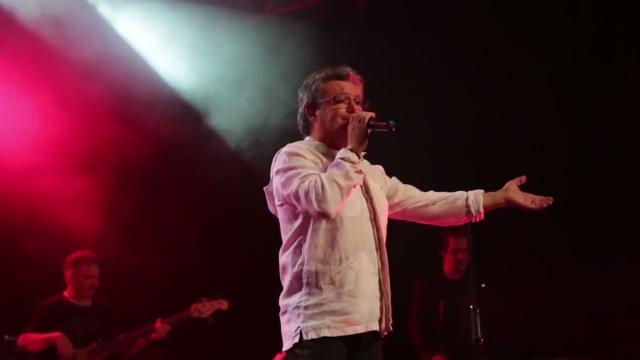
Daniel Balavoine, an iconic figure in French music, left a lasting impact with his poignant lyrics, his commitment, and his powerful voice. His work is often seen as modern poetry, blending emotional depth with reflections on universal human issues. By addressing themes such as love, loneliness, distress, and hope, he managed to touch the hearts of multiple generations.
The text you propose is a kind of tribute to Balavoine’s world, where the resonance of his words and melodies finds a unique echo through the voice of Anton Roman. The latter, with a tone reminiscent of his idol, succeeds in conveying the full power and sensitivity of Balavoine’s songs. This journey through an avant-garde universe is not limited to nostalgia; it also revives timeless questions about love, life, and resilience in the face of adversity.
Analysis of the main themes:
Waiting and Hope (Far from the eyes of the West, a child sits waiting for rain)
This powerful image conveys hope in a context of deprivation or despair. Balavoine often addressed global issues, including inequality, hunger, and conflict, reminding us of the importance of paying attention to those forgotten by the West. The wait for rain symbolizes a thirst for renewal, justice, and change.
Human Distress (Here is the SOS of a human in distress)
This phrase recalls one of Balavoine’s greatest hits, SOS d’un terrien en détresse, a song marked by a deep sense of isolation and misunderstanding of the world. Distress is universal and timeless; it resonates with any human being seeking meaning in life.
The Quest for Love (What could save love?)
In Balavoine’s work, love is continually fragile, incomplete, and even desperate. This question about what could "save love" invites reflection on human relationships, the challenges of attachment, and the evolution of values in a world in crisis.
The Sadness of Solitude (God, how sad love is for the widowed woman who awakens)
The feeling of loss, absence, and solitude is also a central theme. Balavoine was interested in intimate pains and the suffering of the human soul, and this image of a widowed woman grappling with her loneliness perfectly illustrates the melancholy that pervades his songs.
Courage in the Face of Adversity (Lift me up, life teaches me nothing, I’m no hero)
These words illustrate the idea that, despite hardships, one must keep moving forward. Life doesn’t always provide answers, and yet, one must find the strength to face it. Through his lyrics, Balavoine embodied the figure of an ordinary man determined to fight for an ideal.
Resilience (And yet, we must live or survive)
Surviving, a central concept in Balavoine’s work, reflects his commitment to major humanitarian and social causes. He reflected deeply on the human condition, denouncing injustices while offering a form of hope—a call to keep living despite everything.
Anton Roman’s Performance:
With a voice remarkably close to Balavoine’s, Anton Roman seems to deliver a faithful tribute to this unforgettable artist. He doesn’t just cover the songs; he also absorbs the revolutionary and poetic spirit of Balavoine. Accompanied by his musicians, he offers an immersion into this rich and complex universe, where music becomes a vehicle for existential questions.
Revisiting Balavoine’s repertoire is thus a way of bringing back to life a music full of meaning, emotion, and revolt. Roman, with his authentic and respectful approach, seems capable of bringing these songs into the present, giving them an enduring relevance.
In conclusion, Daniel Balavoine’s work is much more than just a collection of songs; it is a true poetic ode to humanity.
Videos










